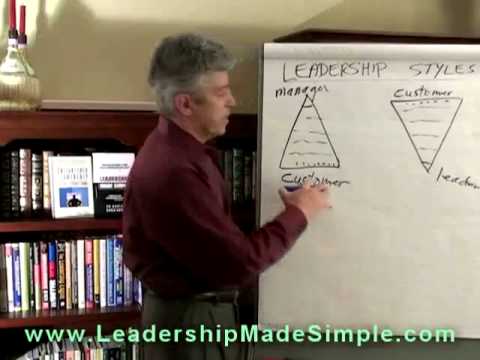Leadership Styles Pt1 – Business Leadership Development
Leadership Styles Pt1 – Business Leadership Development
https://www.leadershipmadesimple.com/
When we do management and leadership development, we like to invite the managers involved, as well as employee leaders, to look at extremes of leadership styles. The process also distinguishes somewhat between management and leadership.
Please rate and comment this video. Give us feedback on its value.
Have to have it? Subscribe!
Websites to check out:
https://www.leadershipmadesimple.com
https://www.enleadership.com
https://www.facebook.com/edoakley
Tweets by edoakley
History of Enlightened Leadership Solutions
The best place to begin is where we got our name.
The Allied Forces had just won a quick and decisive victory in the first Gulf War. The efficiency and the effectiveness of the forces were notable. One of our principals was watching CNN interview one of the Generals in Saudi Arabia .
The General who shared his observations and analysis on why the Allied Forces were so successful commented: The chain of command has empowered the armed forces in the field to get the job done. Decisions are being made at the battle front, not by the brass in Washington . Now thats enlightened leadership.
Three years later, the book was published by Simon & Schuster. The book is in its 31st printing and has sold over 230,000 copies worldwide.
What weve learned is a profound demonstration about the power of human capital, and unleashing that power is at the very core of our work.
Philosophy of Enlightened Leadership Solutions
We believe that people are the cornerstone to success. People are the single biggest opportunity to realize performance gains without expending or investing in additional resources.
Attitude, alignment, communication, focus and commitment are critical differentiators between those who thrive and those who just survive. We consistently find that individuals, teams, and organizations who execute these areas well, out-perform those who may have more technical knowledge or talent.
We believe that what makes people tick doesnt change much from company to company. The behavior that is driven by management philosophy, culture, process, systems, procedures, and structure is unique to each organization. Research has concluded that cultural alignment is a significant factor behind failed mergers and executive retention. Much of the knowledge we have gained over the years will impact individual performance. Organizational performance is further dependent on what, how, and when that knowledge is applied to those unique organizational factors.
We also believe that innovation and knowledge transference is critical and that the greatest measure of our success is how fast organizations integrate and apply the capabilities that we initially provide them. Our goal is to create independence, not dependence on us for success. We are a catalyst and guide for change, not the holder of the process. The more organizations are accountable for success, the greater and more sustaining the performance improvements. Developing that accountability is an important part of our work.
Best regards,
Ed Oakley

